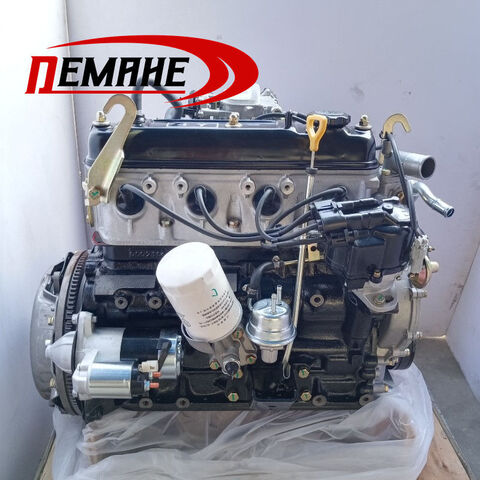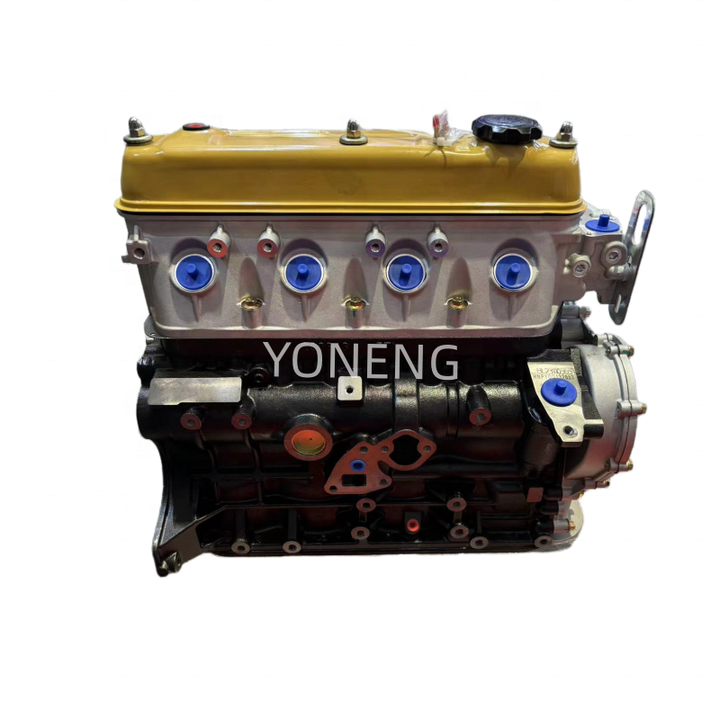Top Modifications to Enhance the Performance of Your 4Y Engine
Top Modifications to Enhance the Performance of Your 4Y Engine
Blog Article
Checking Out the Numerous Kinds Of Engine: Which One Fits Your Demands?
Internal burning engines continue to dominate due to their integrity, while electric engines are acquiring grip for their sustainability. Crossbreed engines provide a versatile concession, and diesel engines stand out for their power in demanding applications.

Interior Combustion Engines
Inner combustion engines (ICEs) are the foundation of contemporary transportation, powering a substantial range of vehicles from autos to planes. These engines operate on the concept of converting gas into mechanical power through a collection of controlled surges within a combustion chamber. One of the most common kinds of ICEs include gas engines, diesel engines, and rotating engines, each designed to satisfy specific efficiency and efficiency requirements.
Gasoline engines typically make use of stimulate ignition, while diesel engines depend on compression ignition, leading to unique distinctions in fuel performance and power output (4y engine). Rotary engines, or Wankel engines, supply a compact layout and smooth procedure, but are much less commonly utilized in mainstream applications
ICEs have undergone significant advancements in innovation, including the introduction of turbocharging and fuel shot systems, which boost total performance and efficiency. In spite of their effectiveness enhancements, ICEs deal with boosting examination due to their environmental impact, particularly regarding greenhouse gas emissions.
Electric Engines
As concerns about ecological sustainability and nonrenewable fuel source dependence expand, electrical engines have actually become a compelling choice to inner combustion engines. These engines utilize electrical motors powered by batteries or gas cells, offering a cleaner and much more efficient motive powers.
Among the main advantages of electric engines is their minimized discharges. Unlike conventional engines that melt nonrenewable fuel sources, electric engines generate no tailpipe emissions, significantly reducing air contamination and adding to enhanced public wellness. Additionally, the effectiveness of electric motors frequently surpasses that of internal combustion engines, converting a better percentage of energy from the source of power into useful energy for activity.
Electric engines are likewise notable for their silent operation, making them excellent for metropolitan environments. 4y engine. The simpleness of their design leads to fewer moving components, which can result in lowered maintenance prices and enhanced integrity in time
Nonetheless, challenges stay, consisting of battery production influences, charging facilities, and array constraints. Regardless of these hurdles, the growing financial investment in electric automobile modern technology and renewable resource resources points toward an appealing future for electrical engines, positioned to play a vital role in the shift towards lasting transportation.
Hybrid Engines
Mixing the benefits of both electric and conventional internal combustion engines, hybrid engines stand for a functional solution in the mission for effective and lasting transportation. These engines integrate a gas or diesel motor with an electrical motor, enabling improved fuel efficiency and lowered emissions compared to conventional automobiles.
Crossbreed engines run in numerous modes, making use of the electric motor for low-speed driving and the internal burning engine for greater rates or when more power is required. This dynamic operation not just enhances gas economic climate but additionally contributes to a smoother driving experience. Regenerative braking is an additional vital function, catching power normally lost during braking and redirecting it to reenergize the battery.

As customers significantly prioritize eco-friendliness, hybrid engines attract attention as a sensible option, providing an effective equilibrium of performance, performance, and environmental responsibility. This versatility makes them suitable for city commuting and long-distance traveling alike.
Diesel Engines
Efficiency and power are trademarks of diesel engines, which have actually long been view favored for their effectiveness and fuel economic situation. These engines operate on the concept of compression ignition, where air is compressed to a high temperature level before gas is injected, sparking it without the need for ignition system. This process makes it possible for diesel engines to attain higher thermal performance compared to gas engines, translating right pop over to this web-site into better fuel gas mileage and lower co2 emissions.
Diesel engines are specifically well-suited for sturdy applications such as trucks, buses, and commercial equipment, where torque and longevity are critical. Their style commonly includes stronger elements to stand up to the greater stress generated during operation, leading to longer life span and minimized upkeep expenses.

Alternative Fuel Engines
While diesel motor have lengthy controlled the landscape of sturdy source of power, alternative gas engines are acquiring grip as feasible alternatives for an extra sustainable future. These engines utilize a selection of fuels, such as pressed all-natural gas (CNG), hydrogen, propane, and ethanol, aiming to reduce greenhouse gas discharges and reliance on fossil fuels.
One substantial advantage of alternate gas engines is their possible to lower carbon impacts. CNG engines give off less contaminants contrasted to standard diesel engines, making them ideal for urban transportation systems and fleets looking for to enhance air top quality. Ethanol, originated from biomass, not just decreases discharges however likewise sustains agricultural economies.
Hydrogen gas cells represent a cutting-edge development in this realm, providing zero-emission power via a chemical reaction in between hydrogen and oxygen. Nonetheless, difficulties such as facilities growth and production expenses stay challenges to extensive adoption - 4y engine.
Verdict
Finally, picking the appropriate engine kind requires careful factor to consider of particular demands and choices. Interior burning engines provide reliability, while electric engines focus on sustainability and reduced upkeep. Crossbreed engines incorporate the benefits of both, enhancing performance, whereas diesel motor give superior power and torque for sturdy applications. Alternative fuel engines present green choices, albeit with prospective framework challenges. Ultimately, a detailed analysis of driving visit this site right here routines and ecological values will help with an educated choice concerning engine option.
Crossbreed engines provide a functional compromise, and diesel engines stand out for their power in requiring applications. The most typical types of ICEs include fuel engines, diesel engines, and rotary engines, each developed to satisfy details performance and effectiveness requirements.
Unlike traditional engines that shed fossil fuels, electrical engines produce zero tailpipe discharges, substantially reducing air pollution and adding to enhanced public health.Hybrid engines operate in a number of settings, making use of the electrical motor for low-speed driving and the inner combustion engine for greater rates or when more power is required. Hybrid engines integrate the benefits of both, improving effectiveness, whereas diesel engines give superior power and torque for durable applications.
Report this page